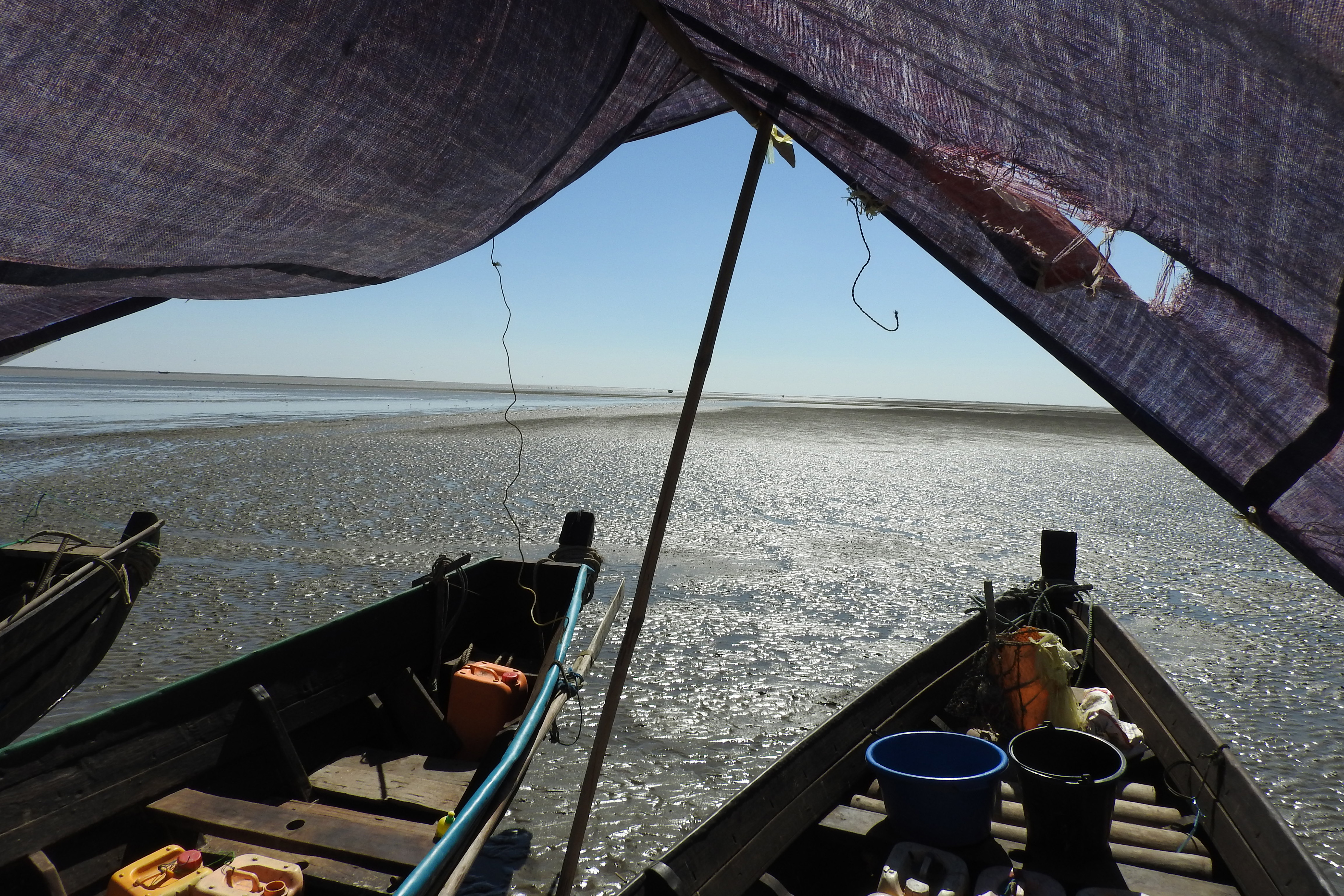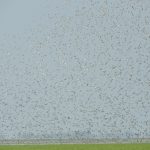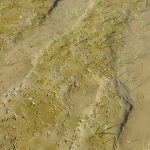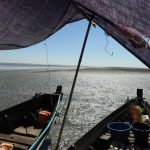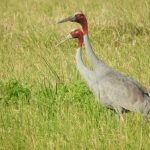On a trip earlier this year to the Gulf of Mottama, Myanmar, associate professor of ecology and evolutionary biology Chris Elphick helped with surveys organized by the Biodiversity and Nature Conservation Association (BANCA), a nonprofit based in Myanmar, and the Spoon-billed Sandpiper Task Force. The surveys were primarily for looking for critically endangered spoon-billed sandpipers, but were also for counting all other species of waterbirds.
Surveys like this are vital for conservation efforts, such as designating and managing protected habitats.
“The Gulf of Mottama is one of the most important wintering areas for shorebirds in Southeast Asia and it is thought to be where a large proportion of the world’s spoon-billed sandpipers spend the winter,” says Elphick. “We only found four spoon-billeds, fewer than in recent years, but there are probably only a couple of a hundred left in the world.”
The other half of Elphick’s trip to Myanmar focused on studying birds in rice fields, another main area of his research. If managed appropriately, rice fields can serve as regular nesting areas for birds, including endangered or vulnerable species such as the sarus crane.
